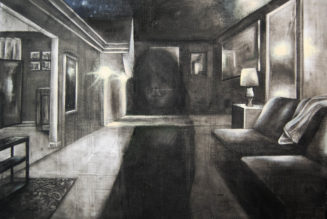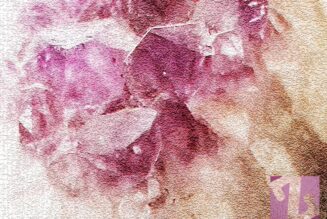On Plato and Robert Mapplethorpe
by Jason Sibert
Every human being feels pain at one time or another.
And we want beauty in our lives to relieve us of the pain. We want a beautiful spouse, a beautiful boyfriend or girlfriend, a beautiful car, a beautiful house, neighborhood, ring, or necklace. If we just have a beautiful whatever, then our lives will improve immensely. However, if we are to have knowledge of what defines beautiful, then we must know what’s not beautiful also.
The Western world is still under the sway of Plato when it comes to our ideas on beauty. From his Allegory of the Cave, we learn that we must transcend our world to reach an ideal (or beautiful) world that exists beyond what we can see and feel. The giant of Greek philosophy called this better world the Form of the Good. In Plato’s thought, all objects in our world are imperfect versions of the forms in the metaphysical world. We can understand the forms through defining the commonalities of the objects that exist in our world. If one can do this, they can reach a leadership position of a philosopher-king.
I once had a relationship that brought beauty and happiness into my life. Like many relationships, it came to an end. Then I spent a great deal of time describing the whole ordeal as anything but beautiful to anyone who would listen. I penned a few essays on my relationship when it was in the happy phase and refused to look at them for years because of the way it ended. Thankfully, at the suggestion of an acquaintance, I dug the essays up and read them again. They brought back quality memories of the relationship – memories that can be defined by their beauty! The essays were penned at the most productive point in the relationship – when Annette and I were friends. This came before the unsuccessful courtship. It came as a surprise because most of us describe a romance as something innately less beautiful than a friendship. Us men often don’t like it when a female in our lives tells us that the like us “as a friend.”
Beauty, art, and aesthetics all go together. Some feel art is only about beauty and are repelled by art that doesn’t bring them into the realm of the beautiful – or into Plato’s “Form of the Good.”
Robert Mapplethorpe, one of our country’s most important photographers, spent his career in search of beauty, but his ideas on the subject confused many. The photographer looked for beauty in places where one might not expect to find it. While his still-life images of flowers are described by most as beautiful, Mapplethorpe’s photos of sadomasochistic sexual practices in New York’s gay community in the 1960’s and 1970’s repelled many. An exhibit of his work, titled “A Perfect Moment,” brought national attention to public funding for the arts in the late 1980’s.
Like many artists, Mapplethorpe worked though diptychs – or the viewing of more than one image together so two pieces become a part of a bigger piece. When Mapplethorpe’s still-life photos are viewed with his S&M photos, or portraits, or self-portraits, one experiences a shock to the senses and at the same time can see similarities. His art makes us question our conception of beauty – we experience beauty and ugliness together and wonder where one starts and the other ends. We learn they come from the same place.
Mapplethorpe’s art questions parts of Plato’s theories. Maybe there is no philosopher-king that will lead us into a realm that is so much better than what we experience. Maybe the Form of the Good can only partially be comprehended by humans and maybe we can’t be philosopher-kings. If that is so, then we only experience beauty in a fleeting manner, surrounded by moments of non-beauty, and we should be grateful when it comes into our lives -even if it leaves us unhappy at the end of the experience in question.
In my relationship with Annette, I became the philosopher-king who knew he had found something beautiful that would last forever. When it didn’t, I described our relationship as the absence of beauty – ugliness. However, thanks to an acquaintance, I now describe the relationship as beauty sprinkled with ugliness, more akin to looking at Mapplethorpe’s art. How much would the world change if we quit playing philosopher-kings?








